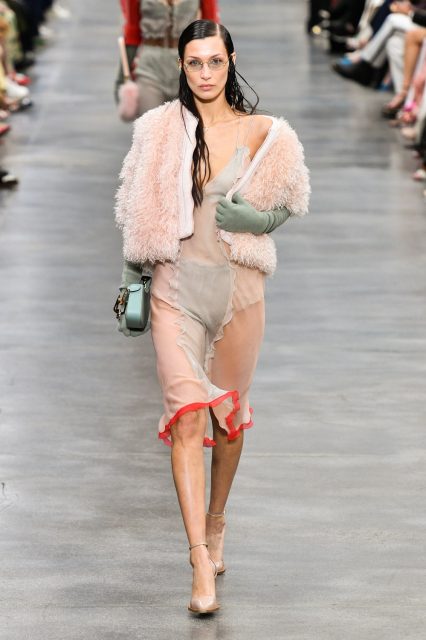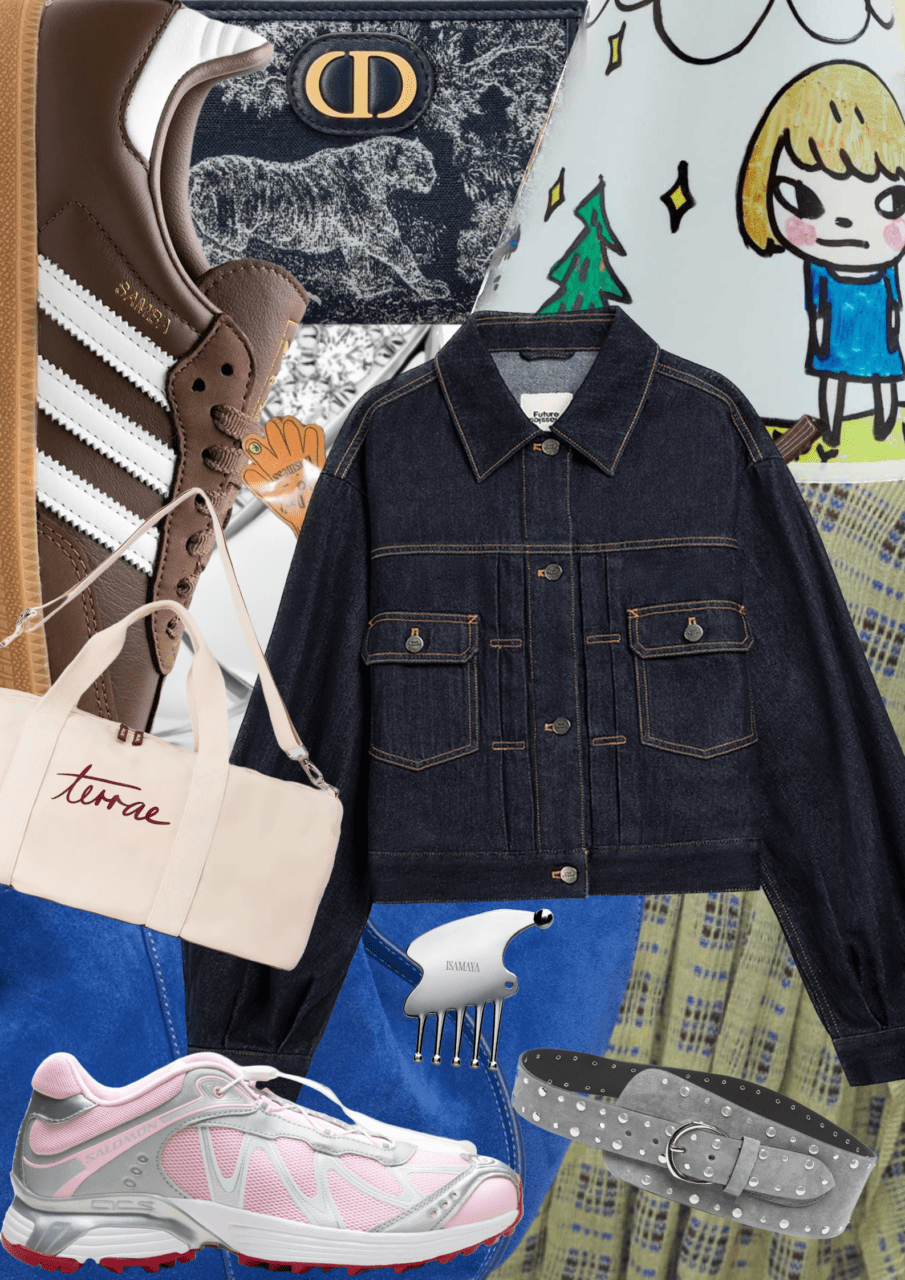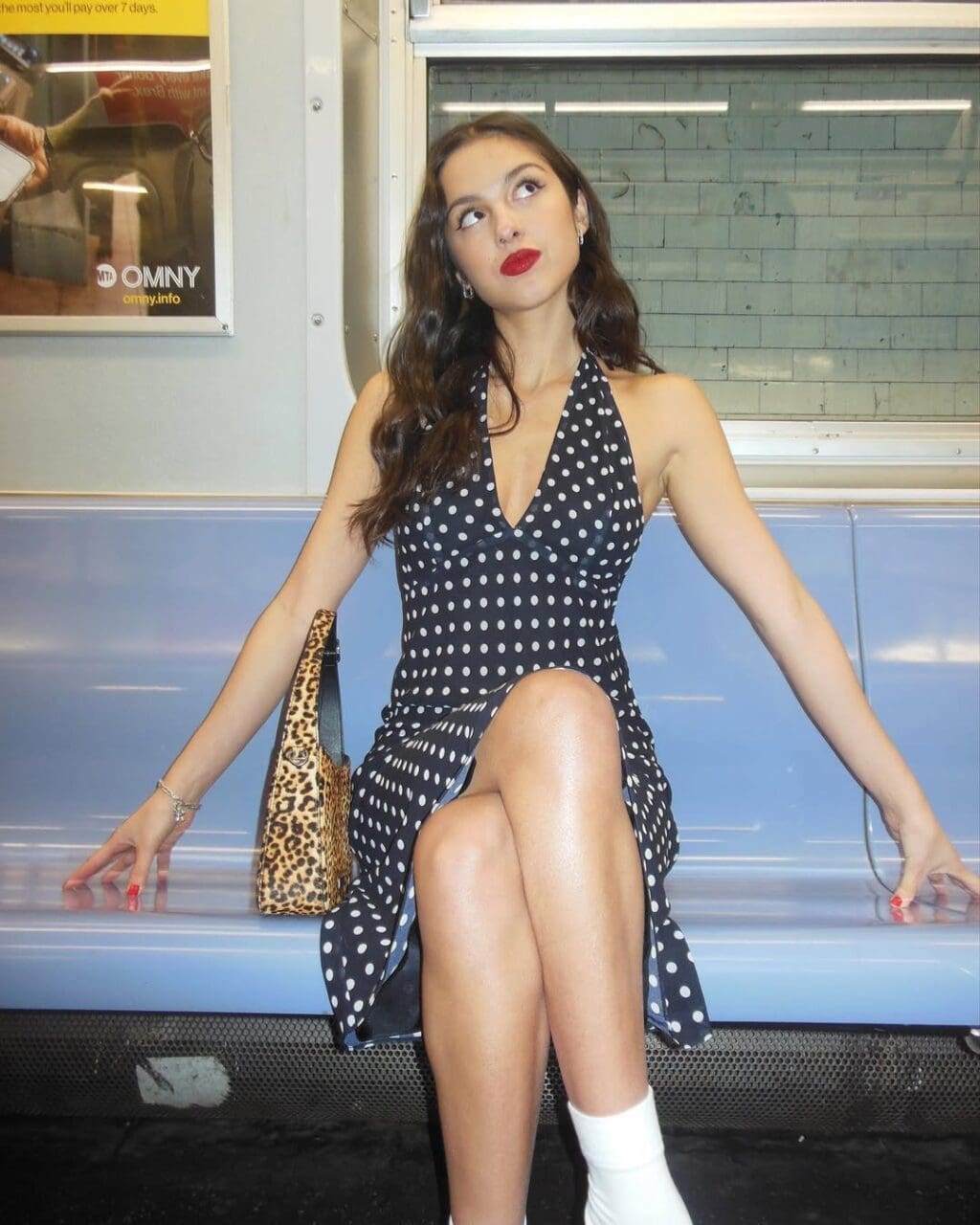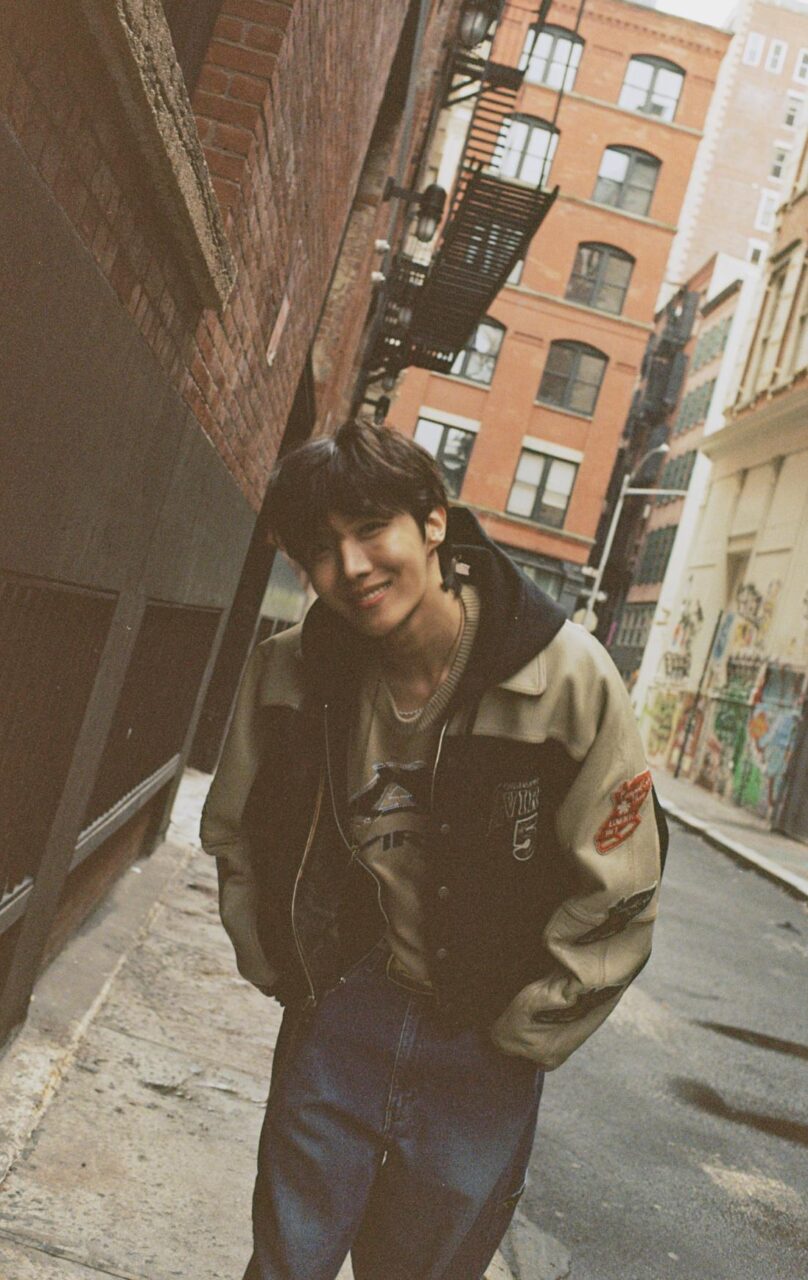Benjamin Reichwald, known to his hundreds of thousands of fans as Bladee, is riding high this year. In March, he and fellow Drain Gang member Ecco2K dropped Crest, a soft yet upbeat and feel-good album that is the sonic equivalent of a trippy Peter Max poster. Pitchfork raved and fans packed sold-out concerts in Europe and the US. But new music is not all this multidisciplinary Swede has up his sleeve. Monday 8 August marks the release of a project that promises a touch of heaven – Heaven by Marc Jacobs, that is.
Reichwald is no stranger to fashion, as he designs merch for Y2001 and sometimes does modelling work, including a 2021 gig for Heaven. Ava Nirui, Heaven’s director of special projects, initiated this collaboration. The ethos of the brand, as I see it, is full-on teenage bedroom, with all the associations of personalisation and fandom that come with that concept. Except Heaven is not a room of one’s own, but more like a clubhouse-y hangout where everybody knows your tastes, if not your name.
Keeping things in the clubhouse, as it were, Reichwald teamed up with his photographer friend Hendrik Schneider to shoot this campaign, which features fellow musicians Baby Sosa and Oklou. As the shoot took place in LA, Reichwald cast surfer West Adler, who turned out to be his doppelgänger.
I joined Reichwald and Nirui for a three-way discussion about fashion, music, and much more.
Ava, for a little context, can you share what your vision for Heaven is and how Benjamin fits into that?
Ava Nirui: Heaven is Marc Jacobs’s more accessible line. I like to compare it to Marc by Marc Jacobs, because I feel to the younger generation, it means what [the line] meant to me when I was a young person, in terms of exposing a younger audience to art and culture and music. Benjamin’s style fits into the Heaven world. It just feels natural. There’s a definite crossover in terms of our communities, and Heaven is such a community project. A lot of these kids are existing fans of Benjamin. The fan culture that surrounds you and Drain Gang, Benjamin, is something I haven’t seen in a really long time, it’s kind of unreal.
Truly. What’s the secret sauce, Benjamin?
Benjamin Reichwald: I want to know too. If the mystery could be solved, that would be cool for me too. I’m not really that interested in any of the other stuff that comes with [fame], I just like making music with my friends. Even now that it is bigger it hasn’t changed how we do things and, and I still hang out with those guys.
How do you use style in creating your world, Benjamin?
BR: For me, style is part of everything, it’s like art you put on your body. I like it for the same reason that I like making music and art; it’s like putting your vibe out into the world in a direct way. I’ve always liked clothes; acquiring weird, different things and combining them I think is really fun.
Ava, how do you see music and fashion fitting together?
AN: I definitely found my style and the clothes that I like through music. As a teenager I was very emo and I would hang out outside this store/concert space in Sydney called Utopia that sold band tees. That was my introduction to fashion. All of the things and the music that I discovered as a teenager are things that I’m constantly referencing as a designer and as an art director. And there’s a lot more of that coming. I don’t think I can talk about it yet, but we’re doing a project with one of my favourite bands of all time. So much of Heaven is about being able to talk to people and make friends with people and give real-time feedback, and the fan in me is like, I wanna know these people that I idolised growing up. Music and fandom and these subcultures that are born out of different music scenes are at the centre of Heaven.
BR: Regarding what Ava said about the emo scene, it’s cool when you don’t just buy a T-shirt, but you become a part of something as well, and you can identify each other by like the logo and [see that] you’re like-minded in a way, which is a cool feature of clothes.
Benjamin, two questions: What song of yours do you think best relates to this collaboration? And what was your starting point?
BR: My [third album] Exeter maybe. I think Heaven is very colourful and fun, so I would say I have a couple of songs with a Heaven vibe; we just match on a lot of points. I got a lot of ideas straight away from picturing the combination of the two brands, Bladee with Heaven. We started talking about this one painting that I made and then we built the collaboration from that. I wanted to frame it in some way. I wanted to do a copper necklace and a bone bracelet with amber.
Do the bones have any symbolism?
BR: They probably do, but not one that I had thought out.
AN: This is just a happy coincidence, but Marc had done bone bracelets for the runway before, which is something we figured out after we went through all of the development. Benjamin’s been the most precise and detailed collaborator we’ve ever worked with. He was very descriptive when it came to what he wanted to do, and he very much took into account what Heaven is, like what the familiar Heaven shapes [are], and then we were able to take his vision and merely be a vehicle to bring it to life.
Do you have different processes for your various creative vehicles, Benjamin?
BR: [Everything comes] from the same source; I think my language always comes through in what I create, even if I try to do something completely different. With painting, I use everything that I have around me and I usually envision something and try to translate that inner picture canvas. When I’m painting, it’s more direct, I just try to get it as close as possible to what I imagine; with music it’s more of a feeling that inspires me and I will just experiment and sing and see how it turns out.
What’s interesting to me about this collection is that it’s a bit trippy, but it’s not ’70s. Can you talk a little bit about this free-spirited feeling, or whatever you want to call it, that runs through your work?
BR: One of the things I like about Heaven as a brand is that it encapsulates this trend right now of taking inspiration from a lot of time periods, but not in a way of looking back and being nostalgic, it’s a very current thing. Where we are right now is like everything at once, which I think is cool. But my tripiness… I don’t know, it’s just how I see things. I don’t like to push that you have to view my work in that way, I like that you can just take away whatever you want from it.
AN: I don’t know if this is subconscious or intentional, but your work for me, Benjamin, has this horror element. There’s something kind of like a nightmare or uncomfortable, and that horror element ties into the spirituality [of some of your work].
BR: Combining the nightmare with some positive dream is at the core of my style; in between is where I create.
Heaven can mean so many things, it really is an expansive concept. What is heaven to you, Benjamin?
BR: I like it in a literal sense; it’s above us all the time, whatever that can be.
And what’s heaven for you, Ava?
AN: Marc would always describe things that he loved as “heaven”, which I think is very sweet and that was an insider thing with him and all of his friends. In a cheesy way my idea of heaven is so much centred around friendship; it’s really at the core of this. The store is a perfect example of that – not that a store can be heaven, but in a way it’s like a retail heaven because it’s a curation of all of my friends’ brands. My best friend does all of the books for the store, we play all of our friends’ music; we’ve created this true community. My idea of heaven is friendship and togetherness and being able to form new bonds and relationships.
So your heaven is on earth, and Benjamin’s is in the clouds.
This interview has been edited and condensed for clarity.
Editor
Laird Borrelli-PerssonCredit
Lead Image: Hendrik Schneider / Courtesy of Heaven by Marc Jacobs




















